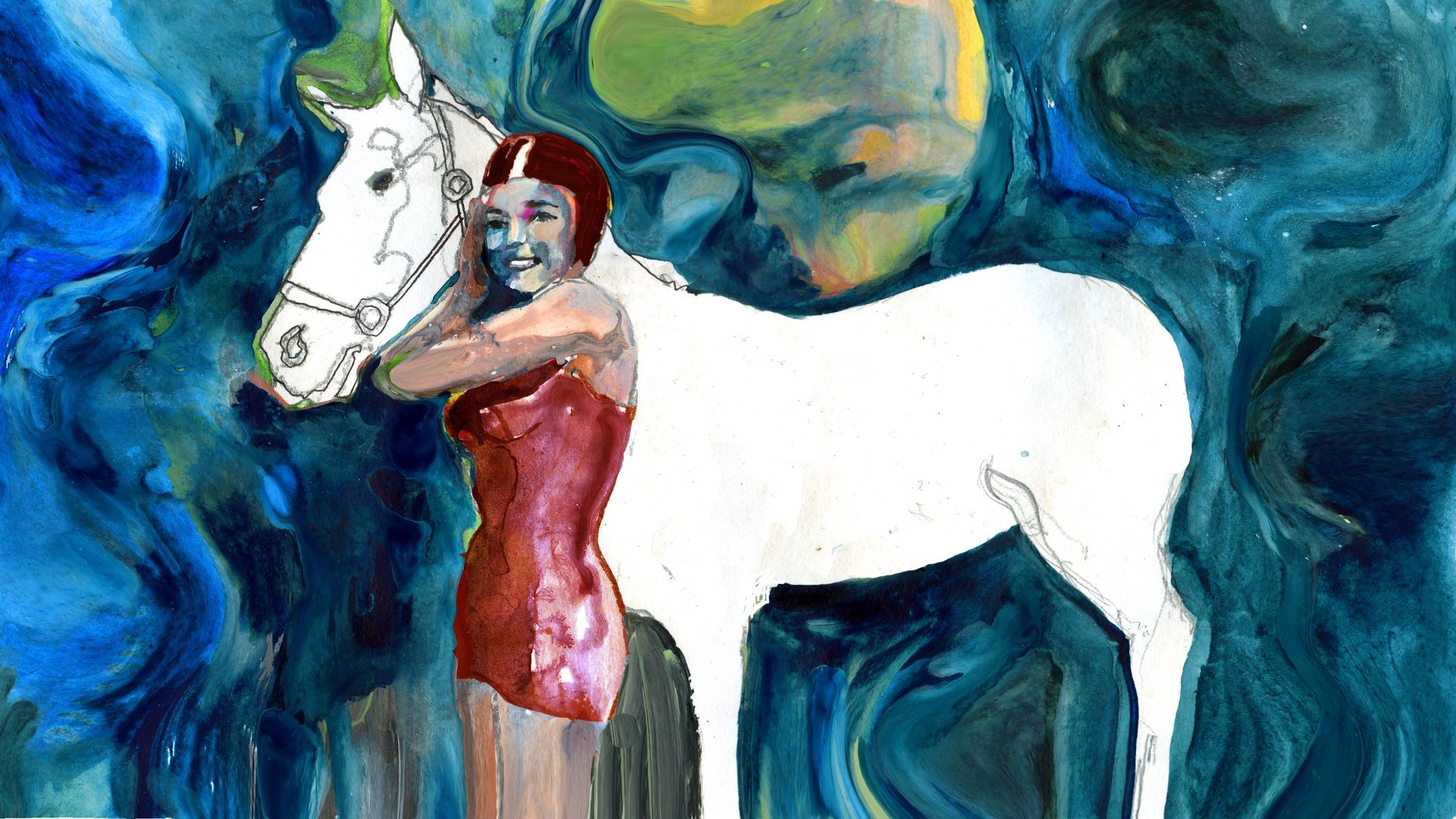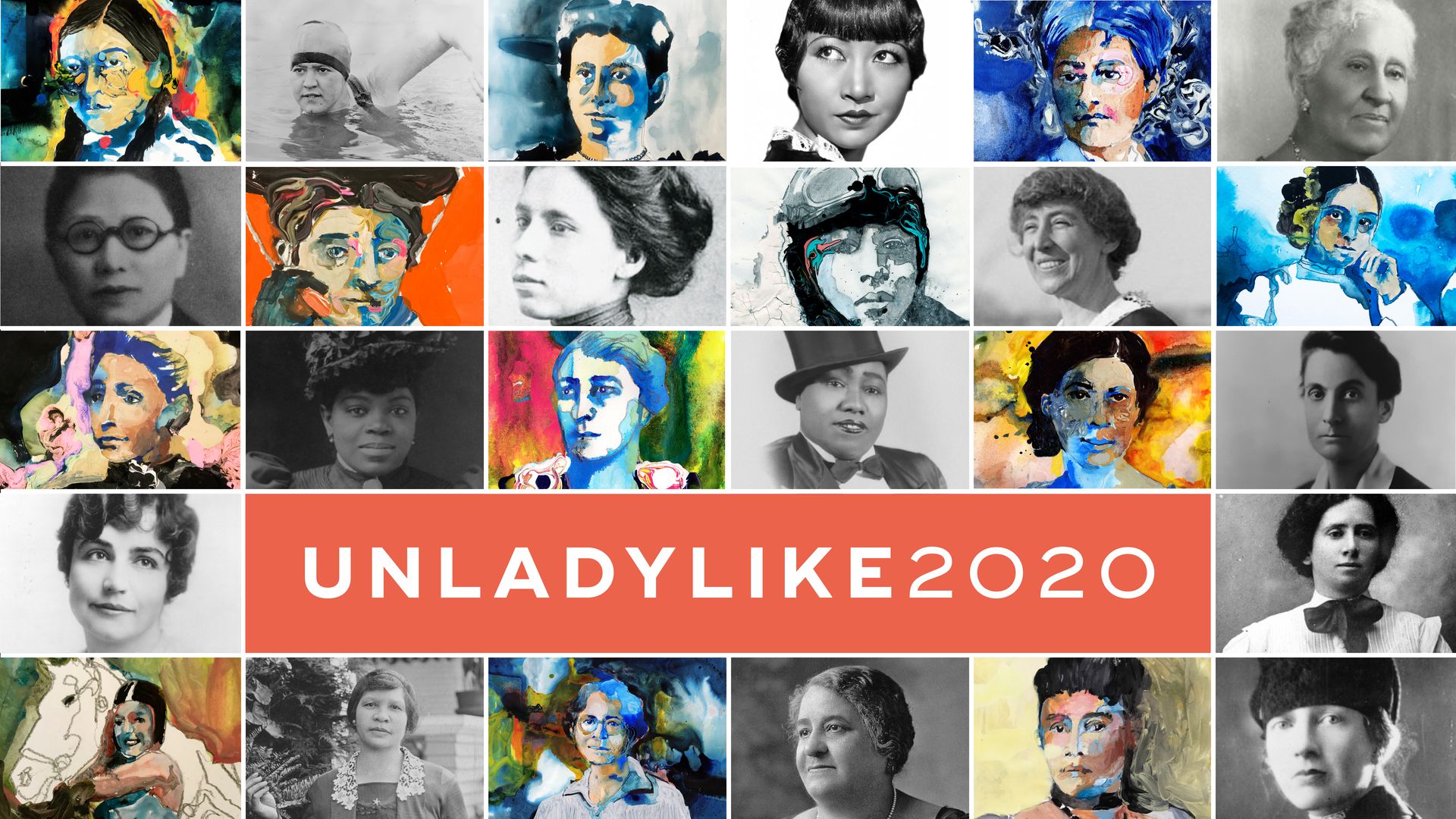Sonora Webster Carver
Year: 2020
Country: USA
Director: Charlotte Mangin, Sandra Rattley
Genre: documentary
Runtime: 10 min.
Age: 12+
Country: USA
Director: Charlotte Mangin, Sandra Rattley
Genre: documentary
Runtime: 10 min.
Age: 12+
Daredevil Equestrian & Advocate For the Blind / 1904-2003
Sonora Webster was born on February 2, 1904, to a working-class family in Waycross, Georgia. She had a love for horses from a young age and would skip school to ride them. In 1923, at 19 years old, Webster’s mother showed her an advertisement in the newspaper seeking an “attractive young woman who can swim and dive; likes horses; desires to travel.” While she was resistant to the idea at first, after seeing the horse diving act, in which a horse and rider dove 40 feet from a tower into a pool of water, Webster was overcome with a desire to join the show. She reached out to William “Doc” Carver, the inventor of the horse diving act, and one of the founders of the Wild West Shows. Within months of witnessing the act for the first time, Webster had joined Doc Carver’s troupe.
Webster went through rigorous training to prepare for the horse diving act, as Doc Carver valued strength in his riders. She first learned how to ride bareback, and was eventually allowed to learn to dive, beginning with a 12-foot practice jump and eventually progressing to higher and higher towers. After completing her training, on May 20th, 1924, Webster made her first public dive off a 40-foot tower at an amusement park in North Carolina and began performing in fairs all over the country alongside other divers, including, eventually, her sister Arnette.
A few years later in 1927, Doc Carver died and his adopted son, Al Carver, took over the management of the diving troupe. Webster married Al Carver in 1928. The following year, Al secured a contract for the act to be a standing show on the famous Atlantic City Steel Pier, which had other wild acts such as Rex the Wonder Dog (a waterskiing dog), and featured performances by stars such as Annie Oakley and later, Frank Sinatra. The horse diving act, and the other Steel Pier attractions, were part of a larger trend of the rise of popular entertainment in the 20th-century – which also included the movies, dance halls, the circus, and vaudeville. Horse diving became one of the most iconic Steel Pier attractions, with Webster performing up to five times a day for audiences of thousands.
Tragedy struck in 1931 when an accident dramatically altered her life. The horse on which Webster was diving had a balancing issue, and Webster leaned back, worried the horse might flip, causing her to hit the water face first with her eyes wide open. The horse was uninjured, but the impact detached Webster’s retina, causing her to go blind. Less than a year later, however, Webster made her comeback and continued to dive blind for 11 years. Her show at Steel Pier ended in 1942 during World War II. Diving horses remained a popular attraction at the Atlantic City boardwalk before being discontinued in the 1970s. An attempt to revive the act in the 1990s was short-lived, in response to protests from animal-rights activists concerned about horse safety.
After her retirement from diving, Webster and her husband moved to New Orleans where she worked as a typist at the Lighthouse for the Blind and engaged in activism for the visually impaired. Webster died on September 20, 2003, at the age of 99. Her 1961 memoir, A Girl and Five Brave Horses, was adapted into the Disney movie Wild Hearts Can’t Be Broken.

